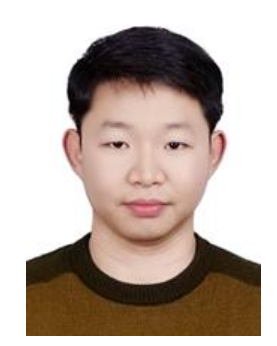Panel Session
"Artificial Intelligence in Offshore Wind and Hydrogen Systems: Smart Control and Integration Strategies"
As the world moves towards a carbon-neutral future, offshore wind power and hydrogen energy are becoming indispensable elements of the clean energy landscape. Offshore wind offers a vast and reliable source of renewable electricity, while hydrogen provides an essential solution for storing excess renewable energy and addressing the intermittency of wind power. Together, these technologies have the potential to reshape global energy systems by enabling the large-scale deployment of renewable energy and facilitating a clean hydrogen economy.
Artificial Intelligence (AI) is playing a transformative role in optimizing the integration of offshore wind and hydrogen systems. By harnessing advanced machine learning techniques and data-driven insights, AI can significantly enhance wind energy forecasting, optimize hydrogen production and storage, and ensure smooth integration with the power grid. AI-powered systems enable real-time monitoring, predictive analytics, and smart control, leading to greater efficiency, resilience, and reliability in both energy production and distribution.
However, the integration of AI into offshore wind and hydrogen systems also presents several challenges. These include optimizing energy flows, managing the variability of renewable energy generation, and scaling AI solutions across diverse and often complex energy markets. Overcoming these technical, economic, and regulatory hurdles is crucial to realizing the full potential of AI in transforming the energy sector. This session will delve into how AI is being applied to optimize offshore wind and hydrogen systems, focusing on smart control strategies, real-time data processing, and seamless integration into the grid, while addressing the challenges and opportunities that lie ahead.
Submission Method
Please submit your paper via https://www.zmeeting.org/submission/pset2026. Please make sure you've registered an account first.
Organizers
 |
Peipei Yu is a Lecturer and Master Supervisor at the Offshore Wind Power Technology Engineering Research Center of the Ministry of Education, Shanghai University of Electric Power. She received her Bachelor and Master degrees of Mathematics at Zhejiang University in 2016 and 2019, respectively. In 2024, she obtained a Ph.D. in Electronic and Computer Engineering from the University of Macau. She has also served as a visiting scholar at Tsinghua University. Her research primarily focuses on the application of Artificial Intelligence (AI) in the fields of energy internet, safety control of offshore wind power, and related areas. She has led two provincial and ministerial-level projects. As the first or corresponding author, she has published more than 10 academic papers in international SCI-indexed journals, including IEEE Transactions on Power Systems and IEEE Transactions on Smart Grid, with one of her papers being an ESI highly cited article. Based on her research outcomes, she won the only Innovation Award and the First Prize in the 2021 South China Grid AI Power Dispatch Competition, as well as the Best Paper Award at the 2021 iSPEC Conference. |
 |
Feng Jia, associate professor, received the PhD in Electrical Engineering from Shanghai Jiao Tong University. He is currently employed at the Offshore Wind Power Research Institute, Shanghai University of Electric Power, as well as the Engineering Research Center of Offshore Wind Technology Ministry of Education. |
 |
Jiaqi Ruan, associate professor, Sichuan University, China. He received the Ph.D. degree from The Chinese University of Hong Kong in 2023. He was a Distinguished Postdoctoral Research Fellow in The Hong Kong Polytechnic University. Currently, he is an Associate Professor with the College of Electrical Engineering, Sichuan University. His research interests include smart grid, AI, cyber-physical security, climate resilience, and risk management. |
Speakers
 |
Xiangyu Li, The Hong Kong University of Science and Technology (Guangzhou), China Abstract: Modern grids are facing a reduction of system inertia and primary frequency regulation capability due to the high penetration of distributed energy resources. To mitigate this challenge, we develop an artificial intelligence (AI)-driven framework for virtual power plants (VPPs) to participate in local ancillary services markets. The proposed system enables coordinated energy bidding and operational management, allowing prosumers and energy communities to deliver grid support services with minimal latency. We formulate a non-convex optimization model that simultaneously determines 1) optimal scheduling strategies for heterogeneous assets within individual VPPs and 2) competitive market bids while minimizing overall operational costs. Due to its nature of high complexity and intractability, we reformulate the decision-making process as a partially observable Markov game addressed through a novel multi-agent reinforcement learning architecture. This approach integrates transformer-enhanced critics with shared encoder layers to effectively capture interdependencies between agents' observations and actions without compromising data privacy. Numerical simulations validate that our method successfully generates cost-efficient bidding strategies using only locally available information from participating VPPs – eliminating reliance on sensitive competitor data typically required by conventional market models. |
 |
Xiaolin Ge, Shanghai University of Electric Power, China Abstract: Offshore wind turbine units are highly susceptible to typhoon-induced hazards, as extreme typhoon events can initiate a cascading disaster chain encompassing strong winds, torrential rainfall, and storm surges. Conventional operation and maintenance strategies, which predominantly focus on typhoon wind speeds, lack the capability to holistically evaluate the impact of typhoons on turbine reliability or to formulate effective maintenance strategies. To overcome these shortcomings, this study proposes a predictive maintenance strategy for offshore wind power systems that incorporates the typhoon disaster chain. The proposed approach is structured in three key steps. First, a multi-disaster joint model is constructed using a 3-D Vine Copula framework to differentially quantify the incremental failure rates of turbine components. Second, a novel unit situational awareness model is introduced by integrating Information Entropy and Recurrent Neural Network into a Temporal Convolutional Network architecture. This model dynamically adjusts reliability assessments by incorporating real-time situational awareness under typhoon disaster chain conditions. Third, to address the challenge of coordinating maintenance strategies across multiple time scales—arising from the compounded effects of situational variations and the typhoon disaster chain on turbine reliability degradation—a hierarchical predictive maintenance strategy with multi-time granularity is developed for offshore wind turbine units. The efficacy and superiority of the proposed model are validated through comprehensive numerical simulations. |
 |
Yiwei Qiu, Sichuan University, China Abstract: Renewable energy-based renewable-power-to-hydrogen (ReP2H) systems are an emerging technology for large-scale decarbonization in the power, chemical, refining, and transport industries. Since 2021, many demonstration projects have been initiated in China and worldwide. The electrical subsystem in ReP2H systems accounts for the green electricity generation, transmission, and conversion to supply power for water electrolyzers and hydrogen production. Due to their specific topology, the nature of 100% renewable power and 100% power electronic converters, and limited access to the external grid, balancing and stability issues are prominent in implementing and operating ReP2H systems. This talk will provide a brief overview of the design, operation, and control of the electrical subsystem. Issues including voltage and frequency security, active and reactive power management, oscillation analysis, type selecting and sizing of electrolysis rectifiers, and network topology designs will be covered. Finally, practical experiences from engineering implementations will be shared. |
 |
Lijun Zhang, Shanghai University of Electric Power, China Abstract: Offshore wind power, as a key technology path to achieve the goal of carbon peak and carbon neutrality, has shown a strong development trend in the global energy transformation. According to the International Renewable Energy Agency (Irena), the cumulative installed capacity of global offshore wind power has exceeded 57GW by 2024, of which China and Europe constitute the world's two core growth poles with 49% and 47% market shares respectively. The existing offshore wind power collection and transmission system mainly presents two technical routes: AC collection&transmission and DC collection&transmission. The former relies on the mature high-voltage AC cable technology, which has the advantages of low equipment cost and strong system scalability, but is subject to reactive power compensation and voltage stability; The latter adopts flexible DC technology such as modular multilevel converter (MMC), which can realize long-distance and high-capacity power transmission, but there are technical bottlenecks such as high system complexity and weak fault ride through capability. This report combs the main ways of offshore wind power at present, looks for the development context of offshore wind power collection and transmission, and explores the development direction of high economic offshore wind power suitable for the far-reaching sea in the future. |
 |
Jinbin Zhao, Shanghai University of Electric Power, China Abstract: Low Voltage Direct Current (LVDC) distribution technology has emerged as a key pathway in the transformation of future energy systems. With the rapid development of distributed photovoltaics, DC-powered buildings, and growing numbers of DC loads, the traditional AC-based supply architecture is facing increasing limitations in terms of efficiency, controllability, and cost. In contrast, LVDC systems offer significant advantages including higher efficiency, flexible structure, and seamless integration with renewable energy sources and energy storage systems, making them an ideal solution for emerging applications such as smart buildings, residential microgrids, and industrial parks. This talk reviews the development background of LVDC technology and outlines representative application cases and core technical challenges. It highlights real-world examples such as experimental LVDC supply platforms, photovoltaic-integrated building components, intelligent home DC networks, and distributed DC systems at the park level. The presentation also introduces our lab’s progress in simulation, prototype verification, and integrated testing of LVDC systems, while addressing key issues such as voltage classification, grounding methods, battery selection, and control strategies. Finally, it explores the promising role of LVDC in enabling net-zero energy buildings and accelerating the global transition to clean energy. |
 |
Bo Li, Guangxi University, China Abstract: Extreme weather events, such as flood hazards, may superimpose damages on coupled power-transportation network (PTN). An effective approach is to guide electric vehicle (EV) owners to enhance grid operational resilience. However, the EV emergency response and incentive prices are not sufficiently quantified for the post-flooding recovery of power distribution network (PDN). Thus, this paper develops a fault scenario generation method to capture the capacity attack on coupled PTN during extreme flooding. Then, a resilience-oriented tri-level dynamic incentive pricing strategy of EV emergency response is proposed for PDN post-flooding recovery. At the upper level, EV charging station (EVCS) operators decide incentive pricing strategies for EV emergency response services by assessing the coupled relations of EV discharging/path strategies and PDN subsidy. At the middle level, a modified traffic model is proposed to capture the EV owner’s inconvenience and battery loss costs. At the lower level, a novel resilience metric incorporating EV discharging response is introduced to mitigate load curtailment of PDN during flooding. Furthermore, a decomposition method based on column generation and optimal path set pre-assignment is proposed to address the urgency and destination uncertainty in emergency response. Numerical results will be shared. |
